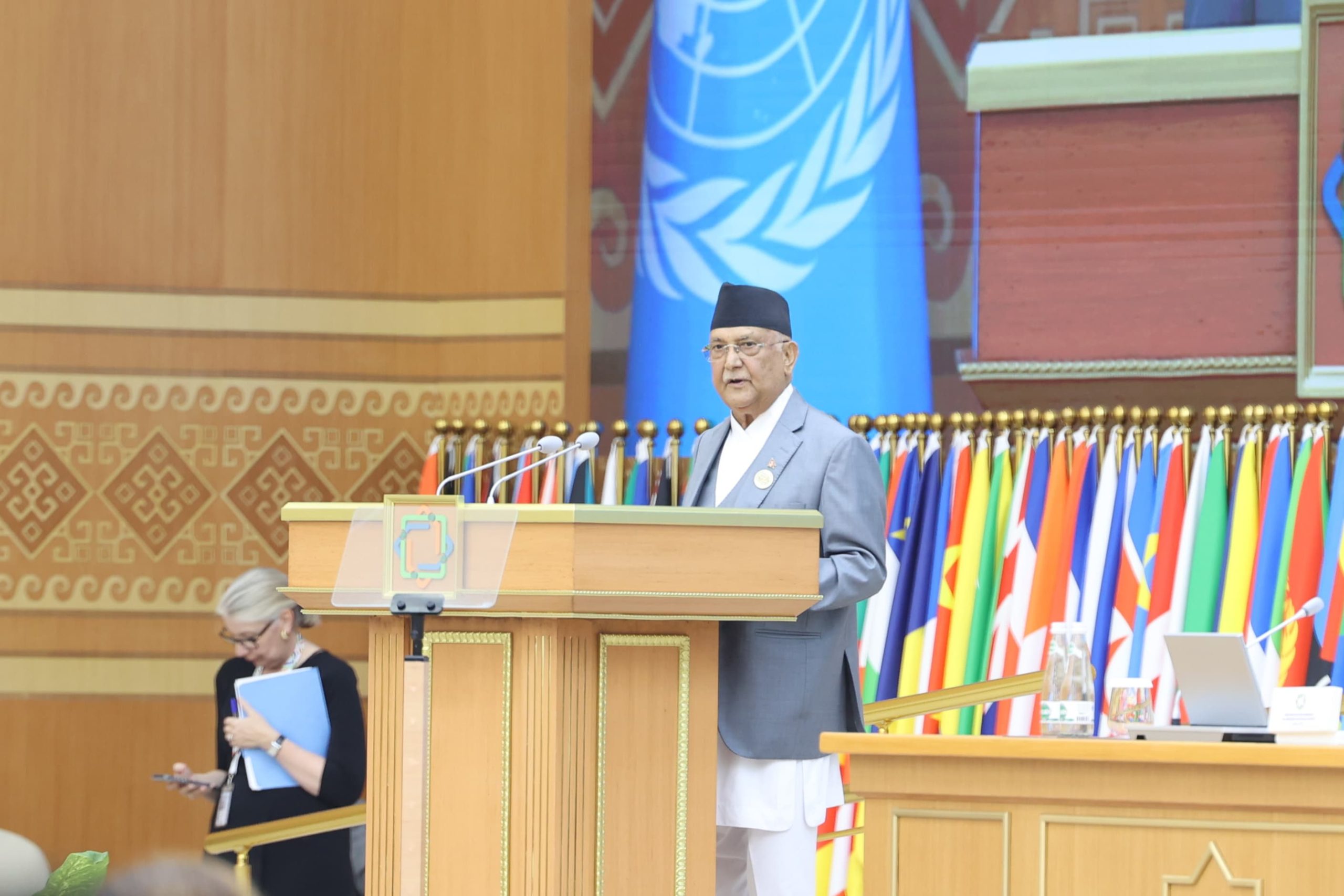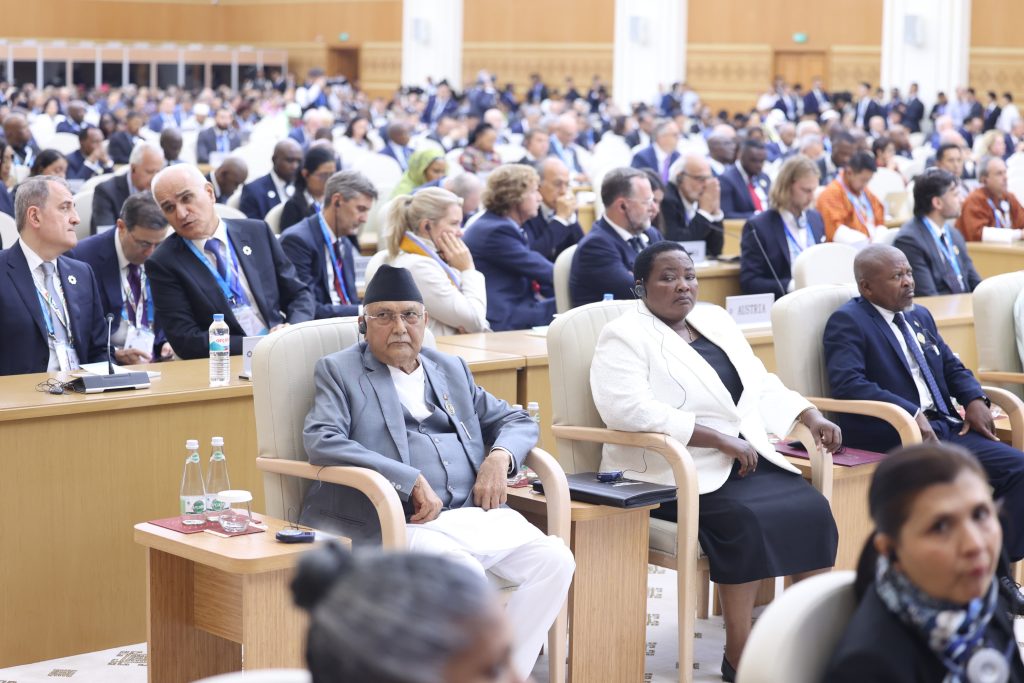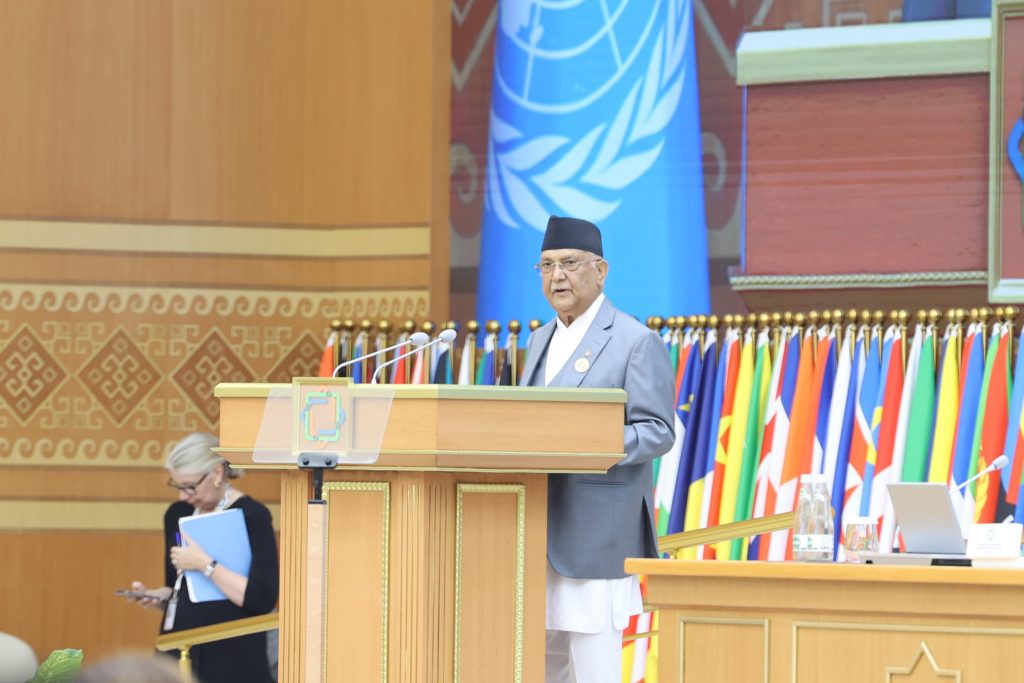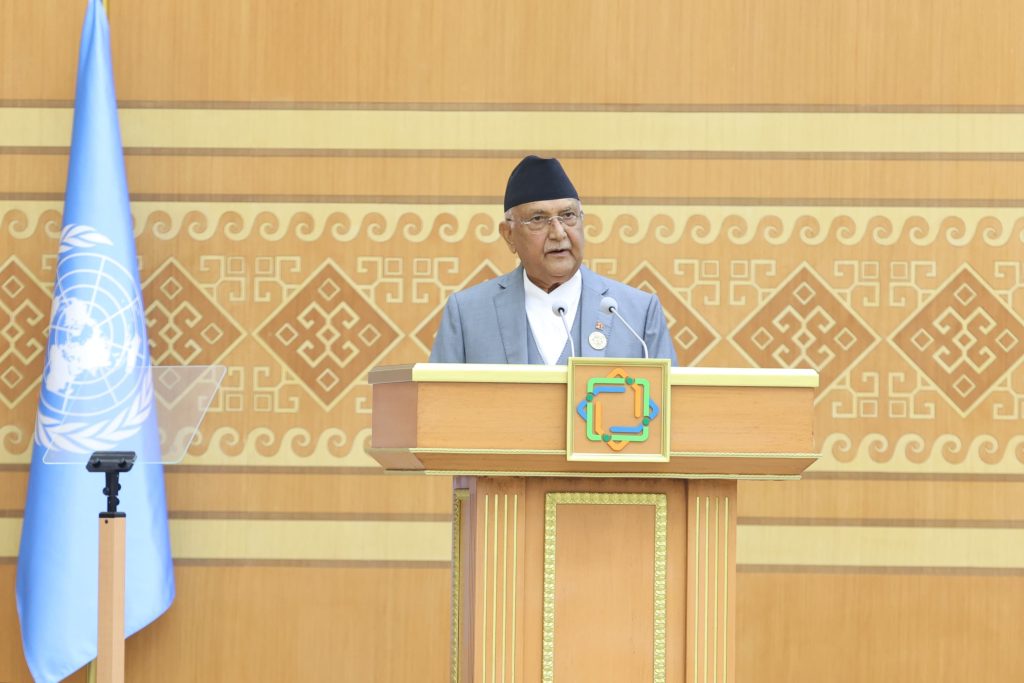
Kathmandu: Prime Minister K.P. Sharma Oli of Nepal emphasized that geography should no longer determine a nation’s destiny. Delivering a powerful address at the Third United Nations Conference on Landlocked Developing Countries (LLDCs) in Awaza, Turkmenistan, on August 5, PM Oli said, “With strengthened partnerships, smart investments, and unwavering collective will, we can overcome the limitations of landlockedness and ensure economic prosperity for our people.”
Highlighting Nepal’s commitment to international cooperation, PM Oli stated that regional solidarity and global partnerships are essential to bridging the development divide. He expressed confidence in Nepal’s journey forward with continued support from neighbors like India and China, along with the broader international community. “We can transform the barriers of landlockedness into gateways of opportunity,” he added. “As a committed member of the LLDC family, Nepal stands ready to work with all of you—not only as a beneficiary of change but also as a partner in shaping it.”
PM Oli called for collective action under the theme “driving progress through partnership” and envisioned a future defined by connectivity, powered by innovation, and marked by resilience, inclusion, and shared prosperity. Acknowledging the persistent structural challenges faced by LLDCs, he noted that despite living in an era driven by technology and interconnectivity, landlocked countries still grapple with geographic isolation, dependency on transit countries, inadequate transport networks, and limited integration into regional and global markets.
He pointed out that the challenges are even more severe for half of the LLDCs that are also Least Developed Countries (LDCs), as the geography of landlockedness continues to hinder their progress. Reflecting on the progress made since the Almaty and Vienna Programmes of Action, PM Oli highlighted the ongoing issues of weak infrastructure, high trade and transit costs, limited diversification and value addition, over-reliance on primary commodity exports, low private investment, and increasing vulnerability to climate change and disasters.
“LLDCs are not just defined by their inherent geographical constraints—they are also defined by their untapped potential,” Oli said. He emphasized that these countries possess abundant natural resources, investment opportunities, and a youthful, innovative population that is increasingly active in the digital economy.
He noted that the Awaza Programme of Action presents a timely opportunity to unlock this potential by addressing long-standing bottlenecks and paving the way for inclusive and resilient growth. However, he cautioned that ambition alone is not enough. “We need stronger political will, renewed and strengthened global partnerships that leave no country behind, and coordinated actions at all levels,” he asserted.
Concluding his address, PM Oli said he firmly believes that with the right policies, strong solidarity, and adequate support, LLDCs can successfully transition—from being landlocked to land-linked, from transit-dependent to trade-competitive, and from climate-vulnerable to climate-resilient nations.
Photos from the Conference:


